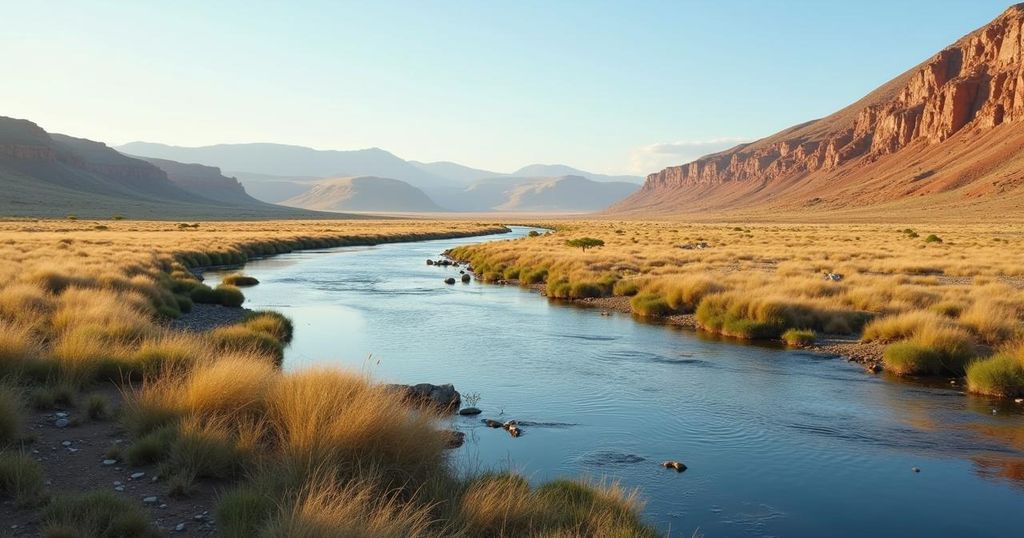South Africa and Namibia are negotiating to resolve a conflict over the Orange River, a key water source delineating their border. The dispute arises from a 1890 treaty that places the border on the river’s north bank, which South Africa supports, while Namibia seeks a redefinition to the river’s center. Both nations emphasize collaboration and mutual trust, particularly amidst growing water scarcity exacerbated by climate change.
South Africa and Namibia have recently engaged in discussions to address their prolonged conflict regarding the Orange River, a significant water resource that forms their mutual boundary. This river is critical as both nations experience severe water scarcity, a situation worsened by climate change. Historically, a treaty from 1890 established the border along the northern bank of the river, which South Africa continues to uphold. In contrast, Namibia advocates for redefining this border to traverse the center of the river. Following two days of negotiations between the foreign affairs officials of the two countries, a joint statement emerged, highlighting their dedication to addressing the issue amicably, fostering goodwill, transparency, and mutual trust during the negotiations. They agreed to present a detailed report drafted by mutual experts to their respective presidents for further deliberation. Namibia has also voiced concerns regarding South Africa’s plans to acquire additional water from Lesotho, fearing it may negatively influence the flow of the Orange River. This concern is compounded by Namibia’s challenges, as it grapples with sub-Saharan Africa’s driest climate characterized by inconsistent rainfall and high evaporation, leading to acute water shortages, which could be exacerbated by prolonged droughts. The country’s Water Affairs Minister, Calle Schlettwein, emphasized the urgent need for 1.4 billion USD in investments over the next decade to ensure water security. The collaborative spirit seen in the talks between South Africa and Namibia stands in stark contrast to the fraught relations between Ethiopia and Sudan over disputes concerning the Nile River, underscoring the importance of maintaining amicable relations in resource management across borders.
The Orange River serves as a crucial water source for both South Africa and Namibia, with historical agreements and geographical implications prompting ongoing diplomatic negotiations. The river not only demarcates the international border but also provides a vital supply of water to areas suffering from extreme scarcity. With climate change impacting water availability more dramatically in arid regions, this conflict over water rights highlights the broader challenges faced by countries in managing shared water resources sustainably. The differing historical perspectives on the border, rooted in colonial-era treaties, complicate the negotiations, underscoring the need for regional cooperation and diplomacy.
In summary, the ongoing negotiations between South Africa and Namibia regarding the Orange River indicate a proactive diplomatic effort to amicably resolve disputes related to water rights, a critical issue for both nations amid environmental challenges. The commitment to a collaborative approach is key to ensuring sustainable water management, which is vital for the welfare of the populations reliant on these resources. As both countries await further consideration from their leaderships, these discussions may serve as a precedent for resolving similar disputes in the future.
Original Source: www.engineeringnews.co.za






